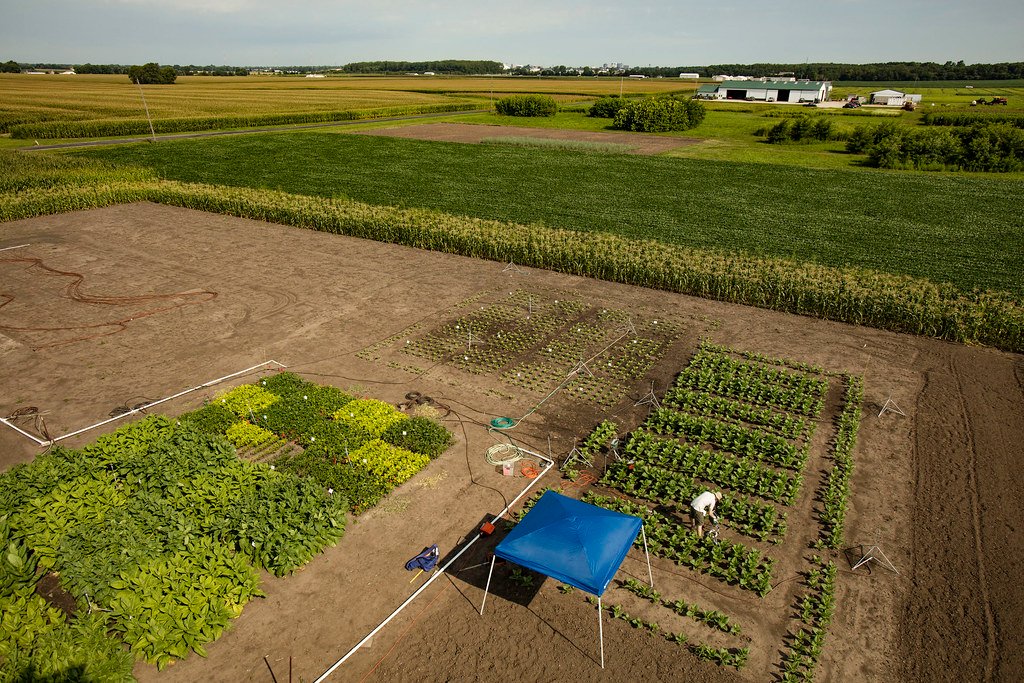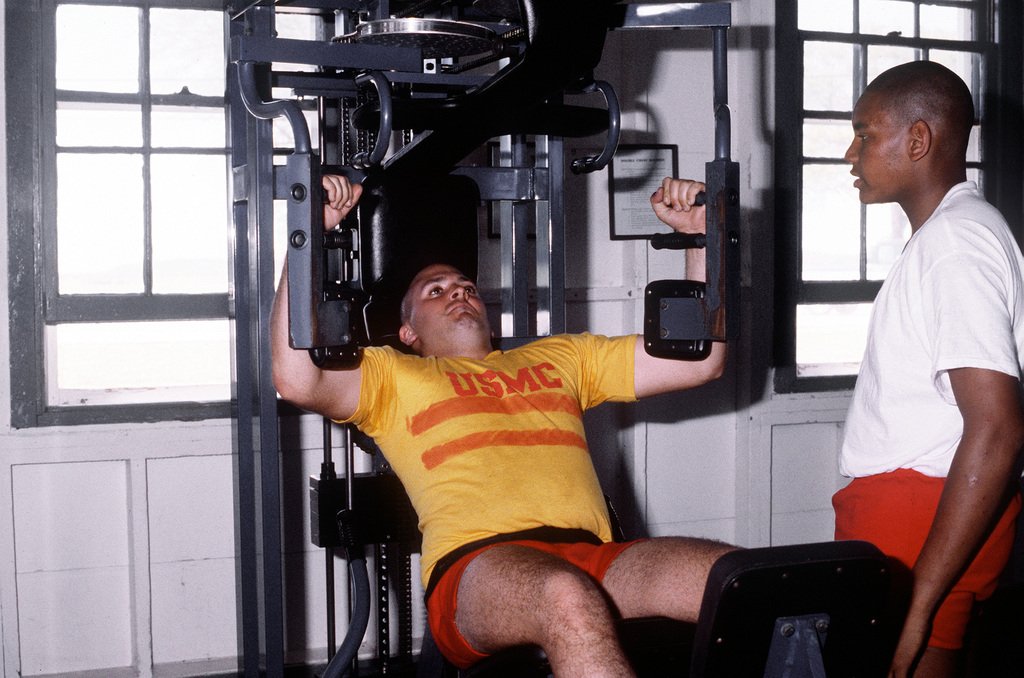The sun-kissed fields come alive with an electric energy as canines harness their natural instincts and embark on an exhilarating voyage of speed, precision, and unwavering determination. Field trials, a captivating sport that showcases the remarkable abilities of our four-legged companions, offer an enchanting spectacle of companionship and skill. Whether you have a vivacious Retriever yearning for adventure or an elegant Pointer ready for glory, preparing your dog for these competitive events demands a careful blend of rigorous training, mental fortitude, and a deep understanding of the intricate dance between handler and hound. In this guide, we delve into the world of field trials, unveiling the steps, techniques, and insights necessary to mold your furry friend into a formidable contender on the lush green canvas of trial grounds. So, tighten your bootstraps, loosen the leash, and join us as we unlock the secrets to shaping a true sporting icon.
Table of Contents
- Preparing Your Dog for Field Trials: A Step-by-Step Guide
- Setting the Foundation: Basic Training Techniques for Field Trials
- Fine-Tuning Techniques: Developing Essential Skills for Field Trials Success
- Optimizing Physical Conditioning: Exercise and Nutrition for Peak Performance
- Mental Preparation: Building Confidence and Focus in Your Field Trial Dog
- Q&A
- The Way Forward

Preparing Your Dog for Field Trials: A Step-by-Step Guide
Field trials can be exciting and challenging events for both dogs and their handlers. To ensure a successful performance, proper preparation is key. Follow this step-by-step guide to get your furry friend ready for the upcoming field trials:
- Assess Your Dog’s Abilities: Begin by evaluating your dog’s strengths and weaknesses. Assess their natural instincts, athleticism, and obedience levels. This will help you tailor your training approach accordingly.
- Basic Obedience Training: Before diving into field-specific training, ensure your dog has a solid foundation in basic obedience commands, such as sit, stay, recall, and heel. These commands will form the building blocks for more complex tasks.
- Physical Conditioning: Field trials require dogs to be in top physical shape. Incorporate regular exercise routines, including running, swimming, and retrieving exercises, to improve endurance and build muscle strength.
- Introduction to Birds: Gradually introduce your dog to live birds. Start with dead game birds, gradually progressing to live birds under controlled conditions. This helps familiarize your dog with the sights, smells, and behaviors they will encounter during field trials.
- Field Training: Train your dog to obey commands while in the field. Practice tasks such as quartering, steady to flush, retrieving shot game, and honoring other dogs’ retrieves. Gradually increase the difficulty level as your dog becomes more proficient.
- Simulated Trials: Arrange mock field trials or training sessions with other handlers to simulate the trial environment. This helps your dog become accustomed to the competition setting, distractions, and the presence of other dogs.
- Polishing Skills: Before the actual field trials, work on refining your dog’s skills. Focus on improving his steadiness, responsiveness to signals, and quick decision-making abilities. Regular practice sessions and constructive feedback will enhance your dog’s performance.
By following this comprehensive guide, you can ensure that your dog is well-prepared and ready to showcase their abilities in the field trials. Remember, patience, consistency, and positive reinforcement are crucial elements throughout the training process. Good luck!

Setting the Foundation: Basic Training Techniques for Field Trials
Field trials require a strong foundation of basic training techniques to ensure success in the competitive arena. Whether you’re a novice or experienced handler, mastering these fundamentals is essential. Here are some key training techniques to set you on the right path:
- Focus on obedience: Obedience is the cornerstone of any successful field trial dog. Train your dog to respond promptly to basic commands such as sit, stay, come, and heel. Consistency and positive reinforcement are vital in building a solid obedience foundation.
- Retrieving drills: A well-trained retriever is crucial for field trials. Practice retrieving drills to develop your dog’s marking skills, steadiness, and delivery to hand. Set up challenging retrieves in various terrains, including water and dense cover, to prepare your dog for the diverse challenges of field trials.
- Establishing effective communication: Clear communication between handler and dog is vital during field trials. Work on developing a strong bond with your dog and learn to read their subtle cues. Use hand signals, voice commands, and whistle commands consistently to establish effective communication in different scenarios.
In conclusion, mastering the basic training techniques is the first step to achieving success in field trials. Consistent obedience, retrieval skills, and effective communication will set a strong foundation for future training and greater accomplishments. Remember, patience and dedication are key to nurturing your dog’s potential and reaching new heights together in the exhilarating world of field trials.

Fine-Tuning Techniques: Developing Essential Skills for Field Trials Success
Mastering the art of field trials requires more than just basic training. To truly excel in this competitive arena, it is essential to fine-tune your skills and develop a keen understanding of the nuances that can make all the difference between success and disappointment. Whether you are a seasoned expert or a beginner, here are some essential techniques to help you reach the top of your game:
- Observation: Take the time to observe and understand the unique characteristics of your field trial venue. Analyze the terrain, vegetation, and any environmental factors that may impact the trial. By doing so, you can tailor your training strategies accordingly and adapt to the specific challenges presented.
- Problem Solving: Field trials often present unpredicted scenarios. Sharpen your problem-solving skills by experimenting with various techniques and adapting them to different situations. This flexibility will enable you to think on your feet and devise innovative solutions to overcome obstacles that may arise during a trial.
- Collaboration: Engage in collaboration with fellow enthusiasts and professionals in the field. Participate in training workshops, seminars, and forums to exchange ideas and learn from others’ experiences. Networking with like-minded individuals will expose you to diverse perspectives, fostering your growth as a field trial expert.
Remember, developing these essential skills is an ongoing process. Embrace the journey and never stop fine-tuning your techniques to unlock your true potential in the world of field trials!

Optimizing Physical Conditioning: Exercise and Nutrition for Peak Performance
When it comes to reaching peak performance in any physical activity, whether it’s sports, training, or even everyday life, exercise and nutrition play a vital role. By focusing on optimizing your physical conditioning, you can unlock your body’s true potential and achieve outstanding results.
In terms of exercise, there are a few key components that can lead to peak performance. First and foremost, it’s important to establish a well-rounded workout routine that incorporates a variety of exercises to target different muscle groups and improve overall strength and endurance. This may include cardiovascular exercises like running or swimming, strength training exercises using weights or resistance bands, and flexibility exercises like yoga or stretching.
Furthermore, nutrition is a fundamental aspect of optimizing physical conditioning. A balanced diet that is rich in essential nutrients and tailored to your specific goals can provide the fuel needed for optimal performance. Incorporating a combination of macronutrients such as carbohydrates, proteins, and healthy fats can support muscle growth and repair, while micronutrients like vitamins and minerals contribute to overall health and well-being.
To truly optimize your physical conditioning for peak performance, it’s crucial to prioritize both exercise and nutrition. By combining effective workouts that challenge your body with a nutritious diet tailored to your needs, you can unlock your full potential and achieve remarkable results in all areas of your physical endeavors.
Mental Preparation: Building Confidence and Focus in Your Field Trial Dog
As a handler in field trials, your dog’s mental preparation is just as crucial as its physical conditioning. Building confidence and focus in your field trial dog requires a well-rounded training approach that considers both psychological and emotional aspects. Here are some key strategies to enhance your dog’s mental capabilities and maximize its potential in the field:
- Establish a consistent routine: Dogs thrive on routine, so create a structured training schedule that aligns with your dog’s natural rhythm. Consistency helps build your dog’s confidence, making it more receptive to new challenges and less likely to become overwhelmed.
- Expose your dog to various environments: Introduce your dog to different training environments to boost its adaptability and focus. Changing training locations frequently helps your dog generalize its skills and adapts to new settings quickly, reducing distractions during field trials.
- Utilize positive reinforcement: Encourage your dog’s confidence and focus by incorporating positive reinforcement techniques. Rewarding desired behaviors with treats, praise, and playtime reinforces your dog’s positive associations and motivation, enhancing its performance during field trials.
- Implement mental stimulation exercises: Engage your dog in mental stimulation activities like puzzle toys, scent detection games, and obedience drills. These exercises challenge your dog’s cognitive abilities, enhance problem-solving skills, and improve its focus, ultimately boosting its overall performance.
- Practice visualization: Help your dog visualize success by incorporating visualization techniques into your training sessions. Use vivid verbal descriptions or images to create mental scenarios where your dog performs flawlessly. This exercise enhances your dog’s mental preparation and builds its confidence to perform at its best.
By prioritizing mental preparation alongside physical training, you lay a strong foundation for your field trial dog’s success. Remember, a confident and focused dog is better equipped to handle the challenges encountered during trials, ultimately increasing its chances of triumph.
Q&A
How do I choose the right field trial for my dog?
Before selecting a field trial, consider your dog’s breed, age, and level of training. Each trial has different requirements, so choose one that aligns with your dog’s strengths and abilities.
What are some important training exercises for field trials?
Some key training exercises include teaching your dog to retrieve game, obey commands, and work well with other dogs. It’s also crucial to expose your dog to different environments and distractions to prepare them for the challenges they may face during trials.
How can I improve my dog’s retrieving skills?
To enhance your dog’s retrieving skills, start with basic commands like “fetch” and “drop.” Gradually increase the distance of retrieves and introduce different types of game. Consistency, positive reinforcement, and patience are the keys to success.
What are the common challenges during field trials?
Common challenges include distractions from wildlife, distractions from other dogs, and staying focused during long periods of waiting. Training in various outdoor environments and realistic trial simulations can help your dog overcome these challenges.
What should I do to mentally prepare my dog for field trials?
To mentally prepare your dog, expose them to various situations in the field, such as gunfire, different terrains, and unpredictable weather conditions. Regular practice in different locations will help build their confidence and adaptability.
How can I improve my dog’s obedience during field trials?
Consistent training, starting from basic obedience commands like sit, stay, and recall, is essential to improve your dog’s obedience. Gradually introduce distractions and practice command responses in different settings to ensure reliability during field trials.
What are the key things to remember during a field trial?
Remember to bring all necessary equipment, such as water, food, collars, leashes, and any required documents. Maintain a calm demeanor to help your dog stay focused and be responsive to commands. Lastly, always prioritize the safety and well-being of your dog throughout the trial.
How do I know if my dog is ready for field trials?
If your dog consistently performs well during training sessions, demonstrates good obedience, and has successfully completed mock trials, they may be ready for field trials. Consider consulting with experienced trainers or handlers for their assessment and advice.
The Way Forward
As we bid farewell to our journey through the wilderness of field trials, we hope that you and your furry companion have found this guide to be enlightening and exhilarating. You have embarked upon an adventure like no other, gaining a glimpse into the world of steadfast canines and awe-inspiring competitions.
Remember, preparing your dog for field trials is no walk in the park. It requires dedication, patience, and a keen understanding of your canine companion’s unique abilities. But with the right training and guidance, you will witness your four-legged friend transform into a true master of the field.
As you embark on this remarkable endeavor, always keep in mind that the bond between you and your loyal partner is at the heart of every success. Cherish the hours spent together, the shared triumphs, and even the occasional setbacks. For in this journey, your dog becomes more than just a competitor; they become your confidant, your teammate, and your inspiration.
So, as you reflect upon the pages of knowledge within this article, remember to embrace the journey and seize every moment. Paws will scamper through fields, tails will wag, and hearts will soar with immeasurable joy. Whether you find glory in victory or solace in the sheer pleasure of participation, the memories forged in the realm of field trials will last a lifetime.
As we part ways, we implore you to take your newfound wisdom and passion into the world. Share your experiences with fellow dog enthusiasts, advocate for fair play and ethical training methods, and continue pushing the boundaries of what you and your dog can achieve together. May your adventures be filled with thrilling challenges, deep connections, and endless moments of wagging tails.
Until we meet again, let your footsteps tread lightly on the grounds of the field trials, your spirit soar alongside your beloved companion, and your love for dogs illuminate every corner of your heart. Happy trails!
As an affiliate, my content may feature links to products I personally use and recommend. By taking action, like subscribing or making a purchase, you’ll be supporting my work and fueling my taco cravings at the same time. Win-win, right?
Want to read more? Check out our Affiliate Disclosure page.